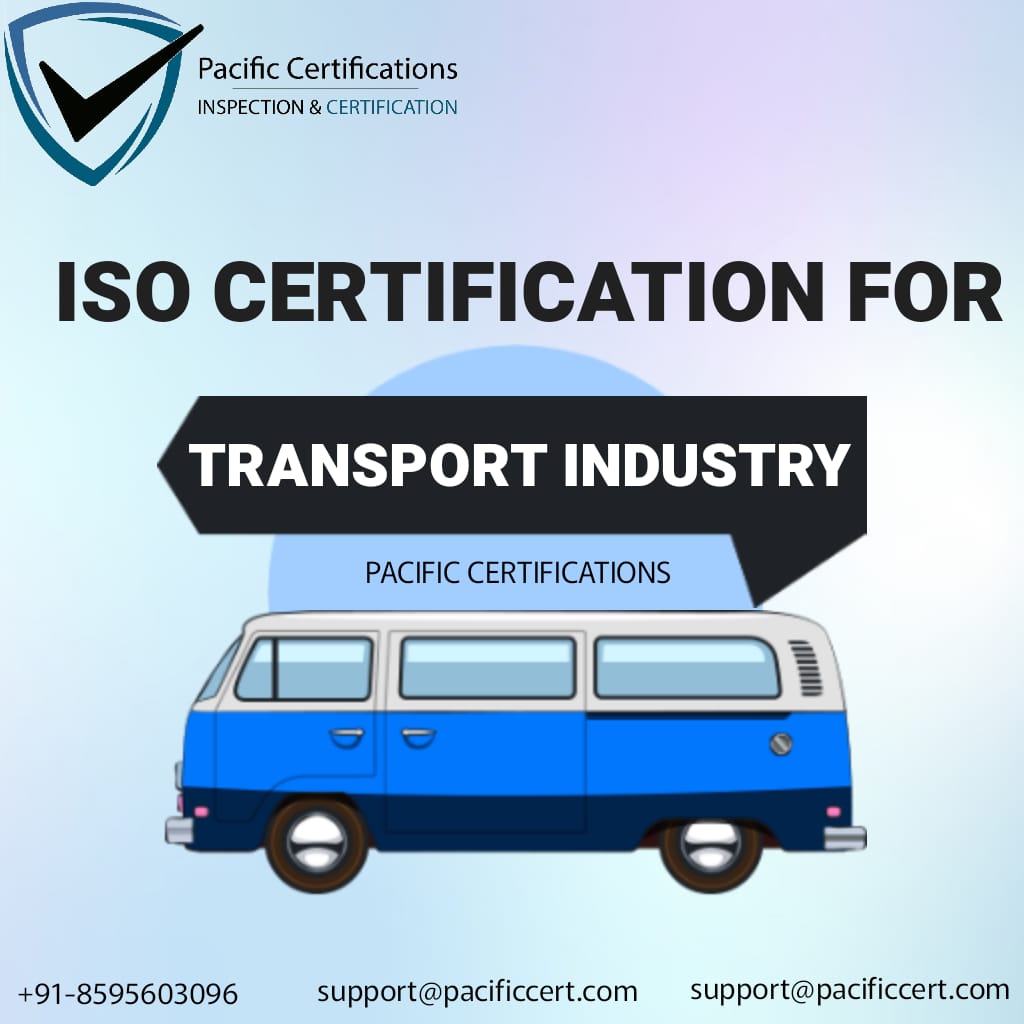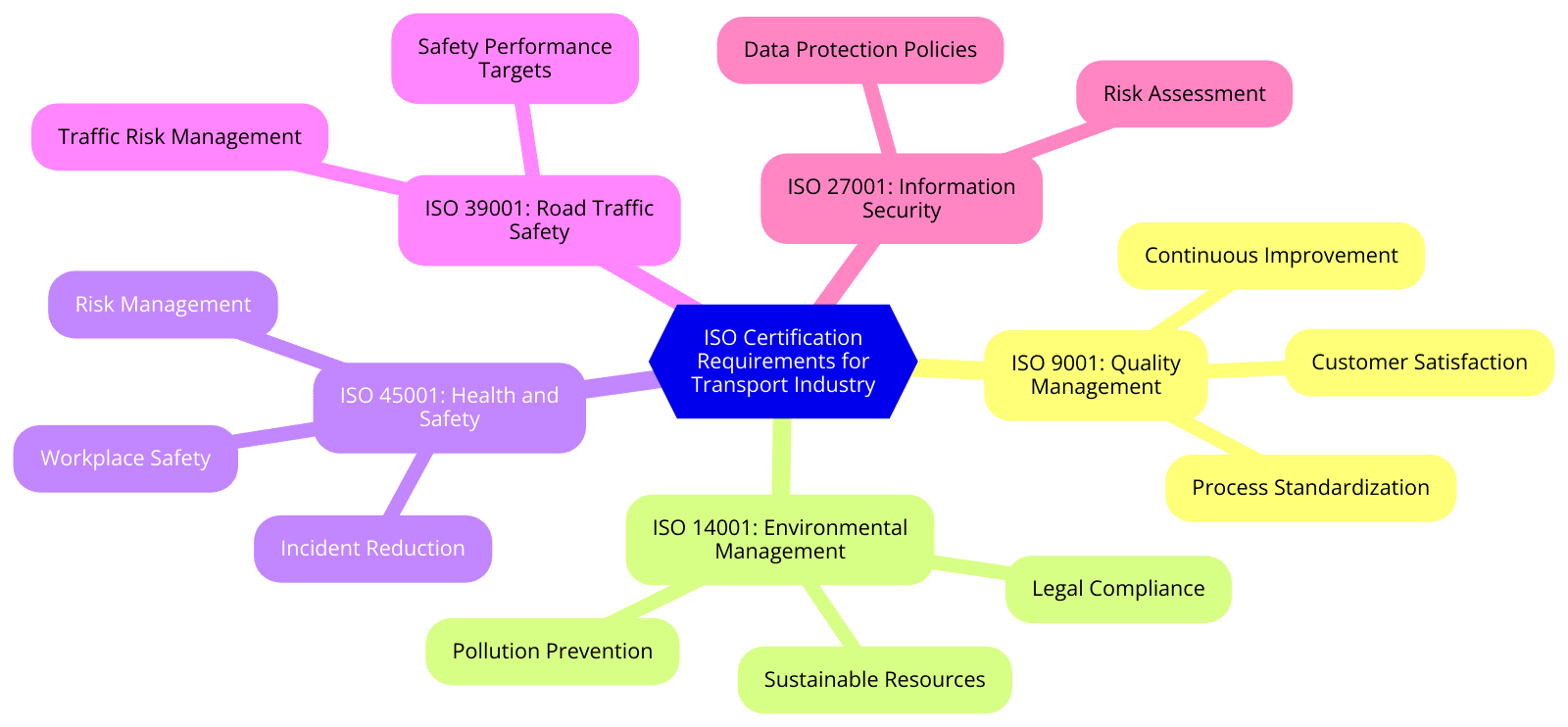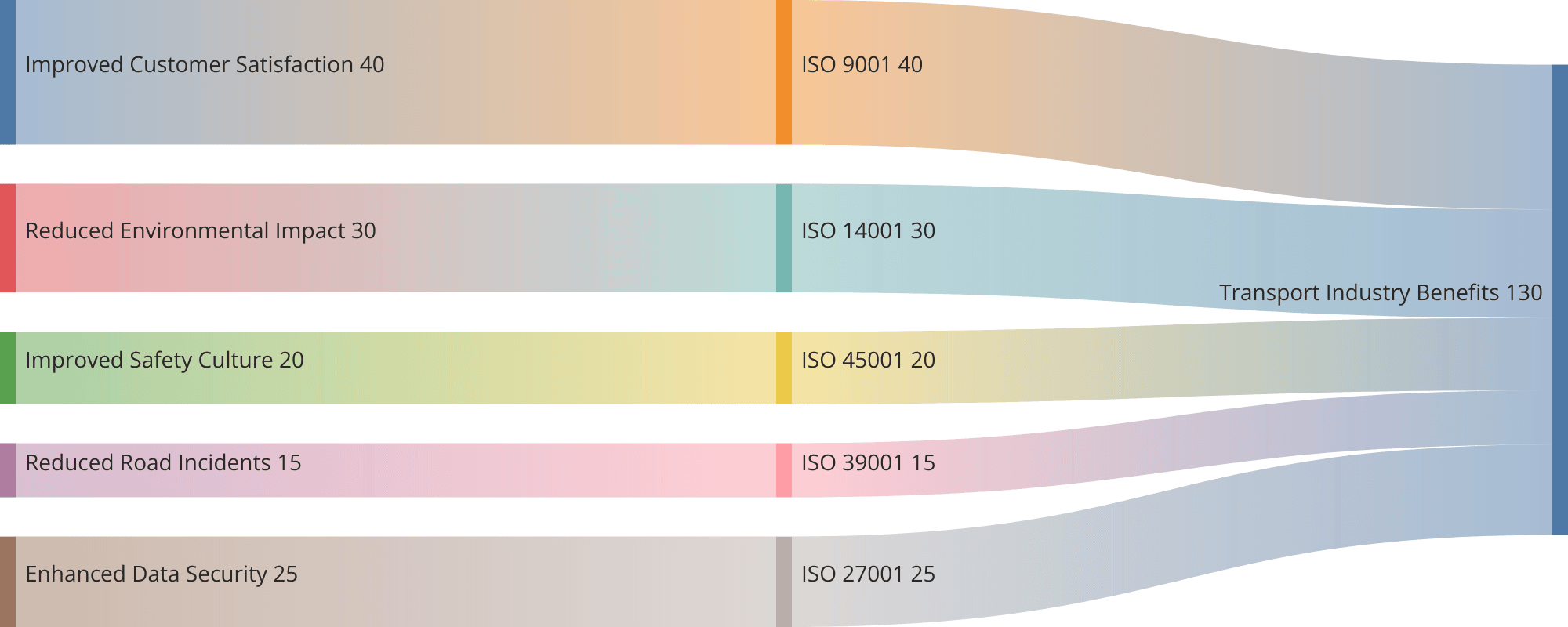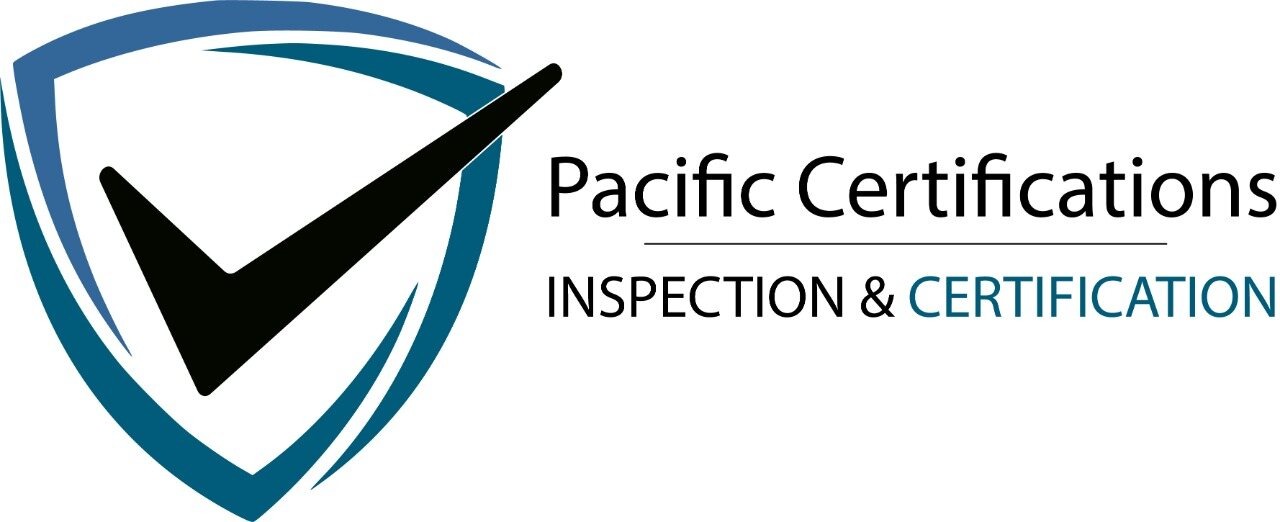ISO Certifications for Transport Industry, Requirements and Benefits

ISO Certifications for Transport Industry
The transport industry is a critical backbone of global trade, responsible for the safe & timely movement of goods and people. ISO certifications provide transport companies with internationally recognized frameworks to improve their operations, ensure safety, and comply with global standards.
The transport industry, involving the movement of goods and people across various modes (road, rail, air, and sea), faces significant challenges such as operational and safety concerns. By implementing relevant ISO standards, transport businesses can improve their performance, reduce risks, and foster trust with customers and stakeholders.

For instance, certifications like ISO 9001 for quality management help to align operations and ensure consistent service delivery, while ISO 39001 focuses on road traffic safety to minimize accidents, ISO 14001, which enables companies to reduce their environmental impact, and ISO 45001 ensures the safety and well-being of employees by managing occupational hazards.
These certifications help companies to meet legal and regulatory requirements and create a culture of continuous improvement,
For assistance with ISO certifications, reach out to [email protected].
Key ISO Standards for the Transport Industry, Requirements & Benefits
When it comes to the transport industry, various ISO standards are highly relevant depending on the nature of operations—whether you're in logistics, fleet management, public transportation, or aviation. Let's delve into some of the most impactful standards.

ISO 9001: Quality Management Systems
ISO 9001 is the world's most popular standard for quality management systems (QMS). It helps transport companies establish a systematic approach to ensuring high quality in every aspect of their operations, from passenger services to cargo handling and vehicle maintenance.
Key Requirements:
- Establish quality objectives and policies relevant to transportation services.
- Monitor and measure performance across departments (e.g., logistics, fleet management).
- Implement corrective actions for operational nonconformities.
- Conduct internal audits to maintain system effectiveness.
Benefits:
- Improves operational efficiency and customer satisfaction.
- Enhances decision-making with data-driven insights.
- Increases credibility with clients and partners.
- Ensures regulatory compliance with transport safety standards.
Need help with ISO 9001 certification audits? Contact us at [email protected].
ISO 39001: Road Traffic Safety Management Systems
The transport industry, particularly road transportation, is susceptible to safety risks. ISO 39001 sets out the requirements for a road traffic safety (RTS) management system. This standard focuses on reducing accidents, improving road safety performance, and ensuring the safety of drivers, passengers, and cargo.
Key Requirements:
- Develop policies and objectives for road traffic safety.
- Implement strategies for monitoring and improving road safety.
- Manage risks associated with vehicle operations and road conditions.
- Conduct regular road safety audits and incident analysis.
Benefits:
- Reduces the risk of accidents and fatalities.
- Ensures compliance with legal safety obligations.
- Builds a positive safety culture within the organization.
- Enhances the organization's reputation with safer transport operations.
To learn more about ISO 39001 certification audits, reach out to us at [email protected].
ISO 45001: Occupational Health & Safety Management Systems
ISO 45001 is the global standard for occupational health and safety (OHS) management, helping transport companies minimize workplace hazards and ensure a safer working environment.
Key Requirements:
- Identify and assess occupational risks in transport operations.
- Implement safety training programs for employees.
- Develop emergency response plans for incidents (e.g., accidents or hazardous spills).
- Establish health and safety performance monitoring.
Benefits:
- Reduces workplace accidents and absenteeism.
- Ensures compliance with local and international health and safety regulations.
- Boosts employee morale and productivity.
- Enhances the organization’s safety credentials in the marketplace.
Ensure your business is ISO 45001 certified by contacting [email protected] for assistance.
ISO 14001: Environmental Management Systems
Environmental sustainability is an increasing priority in the transport sector, ISO 14001 provides a framework for environmental management systems (EMS), allowing transport companies to manage and reduce their environmental impact effectively.
Key Requirements:
- Assess environmental aspects of transport activities (e.g., fuel consumption, emissions).
- Set environmental goals, such as reducing CO2 emissions or waste management.
- Implement sustainable practices (e.g., using renewable energy in fleet management).
- Regularly review environmental performance and make improvements.
Benefits:
- Helps reduce environmental impact and carbon footprint.
- Improves resource efficiency (e.g., fuel, energy, and materials).
- Enhances regulatory compliance with environmental laws.
- Demonstrates commitment to corporate social responsibility.
Let Pacific Certifications help you with ISO 14001 certification audits by reaching out to [email protected].
ISO 28000: Supply Chain Security Management Systems
Supply chain security is a critical aspect of transport, especially for companies involved in logistics and freight forwarding. ISO 28000 sets out a framework for establishing, implementing, and managing supply chain security, reducing risks such as theft, smuggling, and terrorism.
Key Requirements:
- Identify and assess security risks within the supply chain.
- Implement control measures to prevent security incidents.
- Monitor and audit security practices and incidents.
- Collaborate with stakeholders to enhance supply chain security.
Benefits:
- Reduces the risk of supply chain disruptions.
- Increases resilience against security threats.
- Improves relationships with security-conscious clients.
- Ensures compliance with national and international security regulations.
To discuss ISO 28000 certification for your transport business, contact [email protected].
ISO 50001: Energy Management Systems
ISO 50001 focuses on energy management, providing a framework for organizations to manage and reduce their energy consumption. This standard is highly relevant for the transport sector, where energy efficiency, particularly in fuel consumption, plays a significant role in reducing costs and environmental impact.
Key Requirements:
- Develop an energy management policy with measurable targets.
- Monitor energy use across transport operations.
- Implement energy-saving practices and technologies (e.g., fuel-efficient vehicles).
- Review and continuously improve energy performance.
Benefits:
- Reduces operational costs through efficient energy use.
- Enhances sustainability by lowering emissions and fuel consumption.
- Demonstrates corporate responsibility and environmental stewardship.
- Supports compliance with energy-related regulations.
For help with ISO 50001 certification audits, please contact us at [email protected].
ISO 22301: Business Continuity Management Systems
ISO 22301 provides a framework for business continuity management (BCM), helping transport companies prepare for, respond to, and recover from disruptions to ensure minimal impact on operations.
Key Requirements:
- Identify potential risks that could disrupt transport operations.
- Develop business continuity plans to mitigate identified risks.
- Conduct regular testing and reviews of continuity plans.
- Ensure clear communication with stakeholders during disruptions.
Benefits:
- Ensures operational resilience in the face of disruptions.
- Minimizes financial losses and downtime.
- Builds stakeholder confidence in the company’s ability to manage crises.
- Enhances long-term business sustainability.
Pacific Certifications can assist with ISO 22301 certification audits. Contact us at [email protected] for further information.
Benefits of ISO Certification for the Transport Industry
ISO certifications bring numerous benefits to transport companies, helping them to improve performance and build trust with customers. Some of the generic benefits across different ISO standards include:

- By streamlining processes and eliminating inefficiencies, companies can optimize operations and reduce costs.
- Implementing ISO standards ensures adherence to international safety regulations, reducing accidents and legal liabilities.
- Meeting and exceeding customer expectations becomes more achievable with standardized processes.
- Many ISO standards promote environmentally friendly practices, which are increasingly important for clients and governments.
- ISO certification demonstrates a commitment to high standards, setting certified businesses apart from competitors.
For more details on how ISO certifications can benefit your transport business, contact [email protected].
Why Choose Pacific Certifications?
At Pacific Certifications, we are dedicated to helping transport companies achieve the highest standards through reliable and efficient certification audits. As an accredited certification body, we offer:
- A team of expert auditors with extensive knowledge of transport industry standards.
- Fast and seamless audit processes tailored to your business needs.
- Comprehensive reports and guidance to help you maintain compliance.
We are here to support your certification journey every step of the way. For assistance with ISO certifications, reach out to [email protected] today.
ISO certifications play a crucial role in driving safety, and sustainability in the transport industry. From ISO 9001’s focus on quality to ISO 45001’s emphasis on workplace safety, these standards help businesses operate at the highest levels.
If you need more support with ISO certification for your business in Transport Industry, please contact us at +91-8595603096 or [email protected].

Read more: ISO Certifications for Aerospace industry Requirements and Benefits